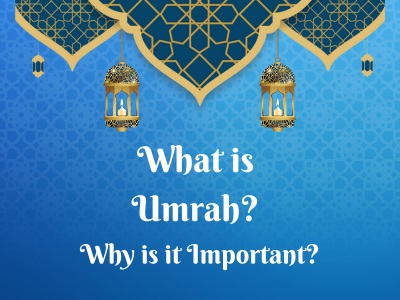What is Umrah?
Umrah, meaning “to visit a populated place” in Arabic, is a non-mandatory pilgrimage to Mecca, the holiest city in Islam. It is a spiritual journey undertaken by Muslims to cleanse their souls, seek forgiveness from Allah, and express their devotion to their faith. Unlike the Hajj, which is mandatory for able-bodied Muslims once in their lifetime, Umrah can be performed anytime throughout the year, multiple times.
The Rituals of Umrah
Umrah consists of specific rituals performed in a particular sequence:
- Ihram: Entering into a state of spiritual purity by wearing simple clothing and abstaining from certain activities.
- Tawaf: Circumambulating the Kaaba, the cubical structure considered the holiest site in Islam, seven times counter-clockwise.
- Sa’i: Running or walking briskly between the hills of Safa and Marwa seven times, commemorating Hagar’s search for water for her son, Ishmael.
- Taqsir or Qasr: Shortening or shaving one’s head hair.
- Tawaf al-Ifadah: Performing another circumambulation of the Kaaba.
Why is Umrah Important?
Umrah offers numerous spiritual and psychological benefits for Muslims:
- Spiritual cleansing: Performing Umrah washes away past sins and renews one’s faith and commitment to Allah.
- Seeking forgiveness: It provides an opportunity to seek forgiveness from Allah and start anew on the spiritual path.
- Inner peace and reflection: The rituals of Umrah promote self-reflection, spiritual growth, and inner peace.
- Unity and brotherhood: It allows Muslims from all walks of life to come together in unity and brotherhood, fostering a sense of community and belonging.
- Umrah vs. Hajj:
- While Umrah shares some similarities with Hajj, it differs in several key aspects:
- Obligation: Hajj is mandatory for able-bodied Muslims once in their lifetime, while Umrah is voluntary.
- Timing: Umrah can be performed any time of the year, while Hajj has specific dates during the Islamic month of Dhul Hijjah.
- Duration: Umrah is a shorter pilgrimage, typically lasting a few days, compared to Hajj, which can last for several days to a week.
- Rituals: While both involve Tawaf and Sa’i, the Hajj includes additional rituals like standing in Arafat, throwing stones at the Jamarat, and sacrificing an animal.
- Conclusion
- Umrah is a sacred journey that offers Muslims an opportunity to deepen their faith, seek forgiveness, and connect with their spiritual core. While voluntary, it is a highly encouraged practice with lasting benefits for the soul and mind. Whether seeking spiritual cleansing, inner peace, or a sense of community, Umrah provides a unique and transformative experience for Muslims worldwide.

